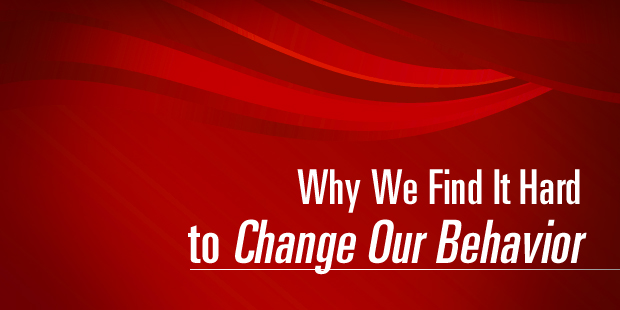
Why We Find It Hard To Change Our Behavior
We know every behavior begins with a thought. So if we want to have lasting change, the beginning point has to be our thinking.
Behavioral change is only surface change if we don’t first change the thinking behind those behaviors. And it won’t stick. It will keep coming out in so many ways we won’t be able to keep up with it because we haven’t changed the thinking behind it.
When we look at our behavior we have to understand that there is a thought going on in our heads that is tripping us up. And we have to change that first. Or we’re working on the wrong thing.
The question becomes, “What thoughts do I need to change to make my behavior change?” New behavior will automatically follow a change in thinking. One right thought can correct a lot of bad behavior.
What am I thinking that isn’t allowing me to see things as I should? As human beings, we latch on to certain ideas and assumptions and they blind us from seeing other options and responses to what life throws at us. We get ideas in our head that can literally block us from seeing other perspectives.
Change doesn’t happen in a moment. We’ve had these patterns of thinking and behavior for a lot of years. We have to unlearn some behaviors and then learn and put into practice the new thinking and resulting behaviors. And it just takes time.
It’s right thinking over time that brings about lasting change. It’s a process. It’s a long history of repeated behaviors in the same direction that builds character.
We have to wake up every day and know that we have a tendency—not just because of our life experiences, but also because of the way that we have chosen to respond to them—to repeat a certain set of behaviors over and over again. We’ve got to remember that and change the thinking that supports these behaviors.
We’ve got a lot of set patterns in our heads that we want to return to, that we have become comfortable with, that we can justify, that we can blame on something someone else did.
That’s why we have to make a point of reflecting on our behaviors and on the impact we have on the people around us. And learn from it. And then go to work on the thinking behind the behaviors we want to change.
It’s not what you do that needs to change, it’s what you think that needs to change.
First change your thinking. The behavior will follow. It all starts with a thought.
Read more from Michael here.












